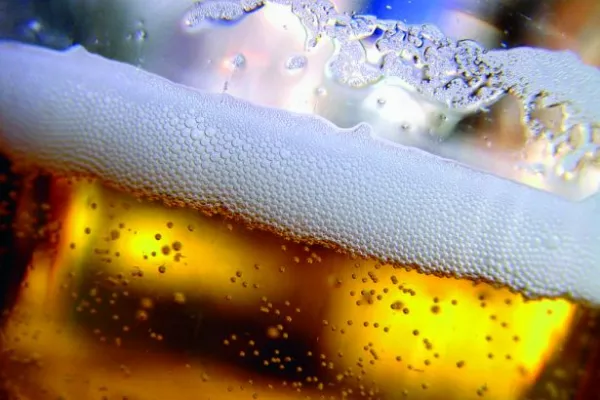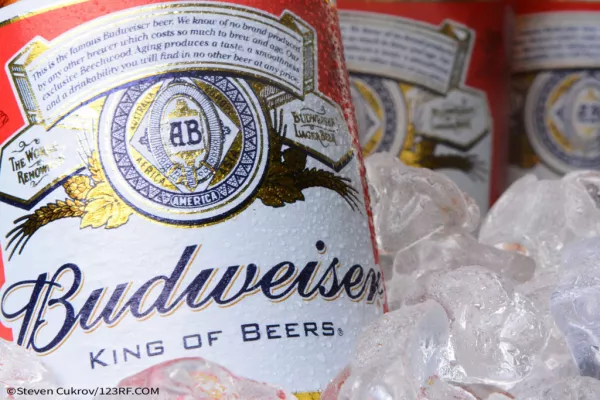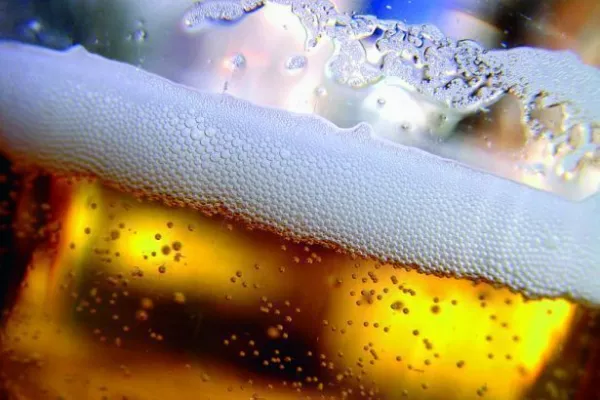The Red Lion Pub has provided refreshment and accommodation to the village of Wingham for more than 750 years.
A developer is seeking planning permission from the local government in Dover to convert the historic tavern into two houses. The locals have mounted a campaign against the conversion; national trends suggest they're doomed to fail.
British beer drinkers are fighting a war on three fronts. Pubs continue to close at an alarming rate. A boom in microbreweries is attracting the big beer makers keener on the marketing hipsterdom of craft ales than their artisan production methods and values. And the surging price of one of the key ingredients points to higher beer prices in the future.
Britain lost 1,100 pubs last year, Paul Oakley, the British Beer & Pub Association's statistician, tells me. In 2015, the total number of establishments dropped to fewer than 51,000 for the first time; the nation has lost more than 13 percent of its pubs in the past decade, with more than a quarter closing since 1980:
There are a couple of key reasons for the demise of the British pub. U.K. house prices have climbed by more than 50 percent in the past five years, according to the Office for National Statistics. As a result, turning pubs into houses and apartments has become something of a national sport, leading to calls for stricter planning regulations. Last year's closure pace of 21 per week is down from 30 in 2014, which suggests new rules allowing protesters to have their local pubs listed as assets of community value have had some success in beating back developers.
The introduction in 2007 of a ban on smoking in public buildings and workplaces had a direct impact on pub closures, Christopher Snowdon of the Institute of Economic Affairs argued in a study published in December 2014.
But changing trends in how Britons spend their leisure time are also hurting the pub industry. Spending on wine, beer and spirits for consumption at home surpassed drinking out for the first time in 2012, and it's easy to see why -- it's five times more expensive to drink out. A pint of Fosters lager costs 4.40 pounds ($5.72) in my favorite local, the Highbury Barn. The Tesco supermarket chain will sell me 8.8 liters of Fosters in a pack of 20 cans for 13 pounds. The pub price works out at 7.70 pounds a liter; the supermarket cost is 1.48 pounds. Pub revenue is taxed at a higher rate than supermarket revenue, and staff costs are also higher in the service industry rather than the shop.
That price gap might be set to become even wider. Rainstorms in Europe this year have shrunk barley harvests in France and Germany. The grain is used to make malt, which in turn is used to make beer. With crops down, barley prices have soared:
That June price spike has driven barley prices 21 percent above their average in the first half of the year. Thomas Druivenga, who runs a German malster called Avangard Malz, told Bloomberg News last month that "prices are entirely passed onto breweries. There is no other way, because maltsters have fairly small margins."
It's not all gloom and doom. The number of brewers in Britain has soared by more than a third in recent years, with more than 1,400 companies now making beer, the most in more than 40 years. The Society of Independent Brewers says it makes 3,500 different beers available through its BeerFlex distribution system, up from just 200 when it first started connecting independent brewers with pub owners 14 years ago.
But that success is attracting attention. In December, Anheuser-Busch Inbev bought Camden Town Brewery, a five-year old London purveyor of ales with names such as Hells Lager and Gentleman's Wit. Seven months earlier, SABMiller purchased the Meantime Brewing Company, also in London.
Now, the purveyors of milquetoast mass-produced beer might prove to be reliable custodians of craft ales. But their commercial ethos seems at odds with the philosophy of microbrewing, while their appetite for jumping on the artisan bandwagon is likely to prove insatiable. How long will it be before Beavertown Brewery or Tap East or the delightfully named Beerblefish Brewing Company falls into the lucrative embrace of one of the global megabrewers?
The government has tried to help. It scrapped an annual inflation-linked levy in 2013, and has ended automatic tax increases on alcohol that previously featured in every single budget. But the Campaign for Real Ale, a lobby group, calculates that Britons pay the government 52 pence in taxes on every pint of beer, compared with 4 pence for Germans, 9 pence for Belgians and 16 pence for the Dutch.
It's unlikely that the discount on supermarket beer will disappear. Britain's housing shortage means developers will continue to target pubs for conversion. New rules came into force this year stopping so-called PubCos -- companies that own and lease out large numbers of taverns -- from obliging their tenants to buy beer from them at inflated prices. The unintended consequence, though, is that tenants are seeing their rents raised to replace that missing revenue, prompting more of them to hand back their keys.
There's no simple solution to Britain's waning pub population. But the British Beer & Pub Association calculates that the industry contributes 22 billion pounds to the British economy, generates 13 billion pounds in annual tax revenue and employs 900,000 people, almost half of them aged between 16 to 24. For economic, as well as social reasons, Britain's pubs are worth defending.
This column does not necessarily reflect the opinion of the editorial board or Bloomberg LP and its owners.
News by Bloomberg, edited by Hospitality Ireland









